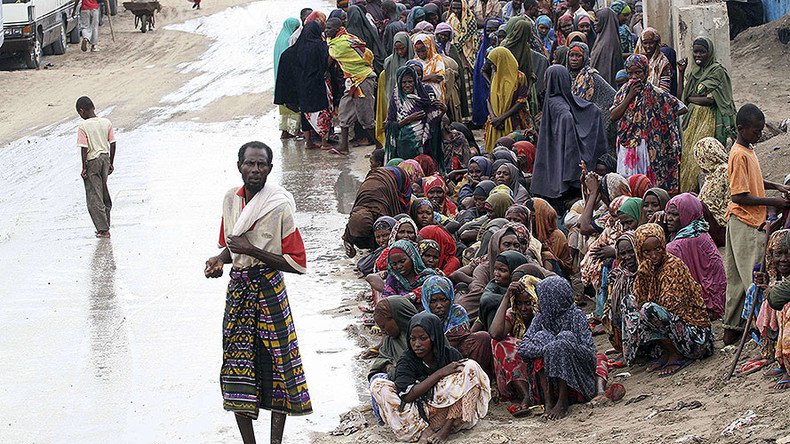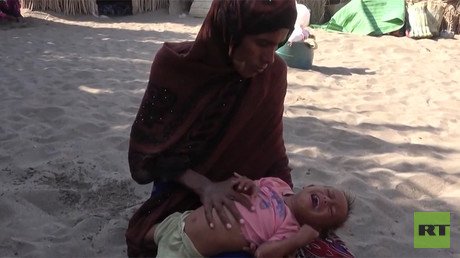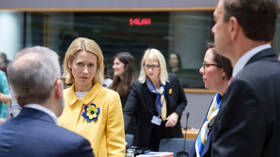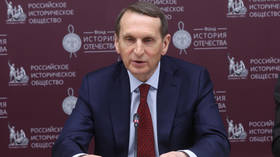UN: ‘People will starve to death’ as world faces largest humanitarian crisis since WWII

The world is facing the largest humanitarian crisis since 1945, the end of the World War II, the UN’s humanitarian chief said, adding that without a collective effort, people in conflict-stricken countries will “starve to death” or “die from diseases.”
“We stand at a critical point in history. Already at the beginning of the year we are facing the largest humanitarian crisis since the creation of the United Nations [1945],” Stephen O’Brien, Under-Secretary-General for Humanitarian Affairs and Emergency Relief Coordinator, said.
According to O’Brien, more than 20 million people in four countries that he visited – Yemen, South Sudan, Somalia, and Nigeria – “face starvation and famine.”
He noted that all of these countries have one thing in common: conflict.
“This means we – you – have the possibility to prevent – and end – further misery and suffering,” he added.
“Without collective and coordinated global efforts, people will simply starve to death. Many more will suffer and die from disease. Children stunted and out of school. Livelihoods, futures and hope will be lost,” he said.
If the situation doesn’t change, he warned that many people “will be displaced and will continue to move in search for survival, creating ever more instability across entire regions.”
The Yemeni people now “face the specter of famine,” as their country is suffering from “the largest humanitarian crisis in the world,” according to the UN official.
We are facing largest human. crisis since creation of @UN. 20M+ face starvation, famine. W/out global efforts, people will starve to death.
— Stephen O'Brien (@UNReliefChief) March 10, 2017
He noted that two thirds of Yemen’s population – around 19 million people – need assistance, while “more than 7 million are hungry and do not know where their next meal will come from.”
The UN humanitarian chief said that, when he visited the country, he saw “first-hand the effects” of the crisis – “malnourishment, hunger and squalid living conditions in destroyed schools, unfinished apartments and wet, concrete basements.”
In #Somalia, more than 1/2 the population – 6.2M people – need humanitarian and protection assistance, incl. 2.9M who are at risk of famine
— Stephen O'Brien (@UNReliefChief) March 10, 2017
He stated that only a political solution will “ultimately end human suffering and bring stability to the region.”
The situation in South Sudan is life-threatening, he said, adding that more than one million children are “acutely malnourished,” including 270,000 children who “face the imminent risk of death.”
O’Brien’s third visit was to another country in humanitarian crisis – Somalia, where women and children “walk for weeks in search of food and water.”
About to brief the #UNSC on my recent visit: #Yemen, #SouthSudan & #Somalia. Watch here: https://t.co/mroO0re9oppic.twitter.com/UrcPcbT6uI
— Stephen O'Brien (@UNReliefChief) March 10, 2017
“For all [these] crises… an immediate injection of funds plus safe and unimpeded access are required to enable partners to avert a catastrophe; otherwise, many people will predictably die from hunger, livelihoods will be lost, and political gains that have been hard-won over the last few years will be reversed,” he warned.
To counter the humanitarian challenges in the impoverished states, the UN needs $4.4 billion by July, “and that’s a detailed cost, not a negotiating number,” he stressed.














